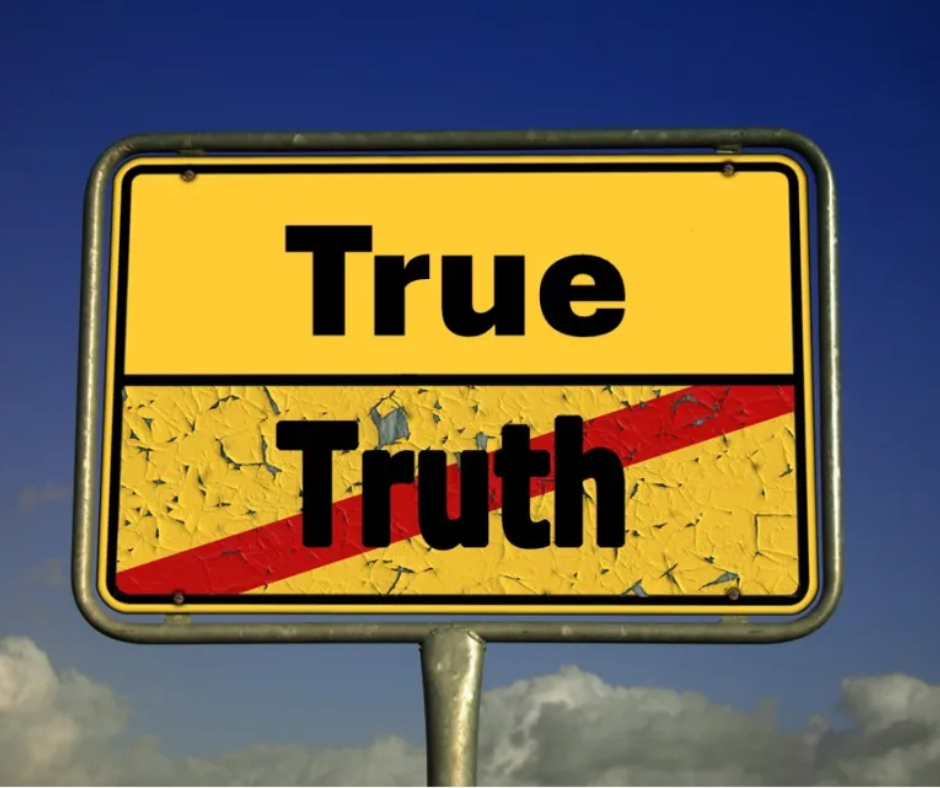RIGHTEOUSNESS vs TRUTH
Two days later, on June 16, Israeli tanks opened fire on a crowd of Palestinians waiting for food aid in Khan Younis. They weren’t fighters. They weren’t holding weapons. They were starving people lined up for bread. At least 59 were killed. Pence was silent. Was this also a “righteous act” of self-defence? What is the truth, and how do we live in a world that proclaims unadulterated biased opinions and double truths? Or does righteousness only apply to one group?
Firstly, righteousness cannot be understood outside the realm of truth. Both are deeply interconnected concepts, especially in theological discussions. Together, righteousness and truth shape ethical living and moral behaviour. Truth reveals what is real, while righteousness determines how one ought to act in response to that reality. This dynamic plays a significant role in justice, reconciliation, and faith—areas critical to ensure peace in a season of war.
The righteous act that Mr. Pence referred to should therefore be calibrated with TRUTH before simply being accepted as TRUE
TRUE vs TRUTH
“What is true” often refers to specific facts or statements that align with our understanding of a situation and the framework of our observation. It is objective and verifiable at a particular moment and within a particular context. How we view the war in Iran can contain information that is true, factual, and verifiable, but even though it might be true, it might be void of truth.
Truth carries a broader, non-bias dimension based on principles calibrated with the Source of truth. Jesus did not say “I am true”, He proclaimed “I am THE Truth.” Christian circles have been saturated with conflicting narratives about the war in Gaza and Iran, each claiming to reveal the true aggressor, the real victim, who represents evil, and who is fighting for good. Every report presented its individual version of “what is true”, yet the perspectives often diverge, shaped by bias, theology, and political influence, and lack the truth.
Truth can only be authentic when it is calibrated with the character, the teachings, and the life of Christ, the source of truth. It must hold meaning beyond immediate factual reality. It MUST contain elements of love, forgiveness, compassion, and redemption. If, in our reports, we gloat over the deaths of unsaved souls, regardless of who they are, our information may be factual and TRUE, but the essence does not convey the TRUTH.
A DOUBLE TRUTH
We all tend to view events through biased lenses. Think of a football match—when the opposing team commits a foul, it seems obvious and justified to be penalised. But when our own team does the same, we justify or downplay it. This kind of selective perception also affects how people view global conflicts, leading to contradictory judgments. Even though objective facts remain unchanged, bias makes it harder to recognize the truth.
Facts—like scientific laws or historical events—do not change based on personal opinions. However, double standards warp how people prioritize and interpret those facts. For example, two groups witnessing the same Israel-Iran conflict might see Israel as the victim or Israel as the aggressor, depending on their perspectives. The truth itself doesn’t change, but its framing does, creating a double truth.
These inconsistencies often result from selective reasoning, where the same evidence is accepted or ignored based on who is involved or what outcome is preferred. This doesn’t change reality, but it makes truth harder to see, requiring critical thinking to untangle facts from bias.
To navigate a world full of double truths, we must question information critically, compare multiple sources, and stay aware of our own biases. Then, recalibrate, recalibrate, and recalibrate again. Doing so helps us get closer to the objective TRUTH, even when distortions try to obscure it.
If your truth villainises or demonises a group or a nation, you might be sharing true reports, but it will be void of truth. While double standards weaken fair discussions, they don’t erase truth—instead, they challenge us to think more deeply and fairly. They should challenge us to think like Christ.
Here are ten geopolitical double truths that highlight the double standards of Western media in the Iran-Israel conflict.
1) NUCLEAR CAPABILITIES
Israel refuses to sign the NPT, rejects IAEA inspections, and maintains a policy of nuclear ambiguity, despite independent estimates suggesting it possesses 90 to 400 nuclear warheads.
With no comparable international pressure, this disparity exposes a double truth in how nuclear oversight is applied.
2) MILITARY ACTIONS AND SOVEREIGNTY
This contrast highlights the selective application of self-defence narratives, shaping perceptions of regional stability and conflict escalation.
3) MEDIA AND DIPLOMATIC RESPONSE
Watching Al Jazeera and CNN reporting on Iran feels like observing two different wars—each presenting true incidents but neither telling the truth. Critics say this reveals selective storytelling, where some narratives are emphasized while others are ignored. This imbalance in reporting and global response highlights a double truth in how conflicts are framed and understood with Israel always being viewed favorably regardless of how many innocent people die in the process.
4) SANCTIONS AND ECONOMIC PRESSURE
5) BEING LABELLED AS TERRORISTS
The UN General Assembly Resolution 49/60 (1994) defines terrorism as acts “intended or calculated to provoke a state of terror in the general public, a group of persons or particular persons for political purposes.”
Hamas’s 2023 attack on Israel, killing over 1,200 people, was rightly defined and condemned as an act of terror. Yet, Israel’s retaliatory strikes in Gaza aimed at provoking a state of terror in the general public, killed over 50,000 people, including 15,000 children, and was framed as self-defence. Iran’s history of terror-related activities led to its global scrutiny, while Israel’s unprovoked attacks on Iran, targeting civilians and leaders, were left unchallenged. This selective framing highlights a double truth, where some actions are condemned while others are praised or excused at best. True accountability demands that all acts of terror—regardless of the perpetrator—are judged by the same measure.
6) THREAT TO CIVILIZATION
As a result, Israel’s ongoing military campaigns in Gaza, Syria, Lebanon, Yemen, and now Iran has led to the highest number of conflict-related deaths in the world over the past two years.
The non-biased question needs to be asked: Who has become a threat to civilisation and who are the ones enacting deeds of barbarism? If it is true for Hamas and Iran, then certainly the same truth applies to Israel as well.
7) VICTIM AND AGGRESSOR
This in no way suggests that Hezbollah or Hamas are innocent. Both are known for their aggressive approach to their perceived oppression. However, we often fall into the binary thinking that if one party is the aggressor, the other is automatically the victim. If Hamas is deemed the aggressor, then Israel is automatically seen as the victim. We need to understand that both parties can assume the role of aggressor at the same time. The narrative that places parties opposite one another instead of next to one another excused Israel from the atrocities that followed.
The victims of the regional conflict in the Middle East are women and children.
Since October 7, 2023, more than 50,000 children have reportedly been killed or injured in Gaza. According to UNICEF, this equates to one child affected every 20 minutes. The Palestinian Ministry of Health in Gaza has confirmed that 15,613 children have been killed, making up 31% of the total casualties. Many more remain missing or presumed dead under the rubble.
Those are the victims. Not Israel.
If the general definition of victimhood is to be accepted and Israel is classified as the victim in the conflict and not Iran, then double truths are at play
8) HUMAN SHIELDS
In contrast, when Hamas operates from within civilian areas, Israel and its allies often accuse them of using “human shields” to fight the war. This term implies an intentional strategy to deter attacks by embedding military assets among civilians, which is considered a violation of international law.
Critics highlight a double standard in how the conflict is framed. While Hamas may operate in civilian areas, the massive destruction in Gaza—tens of thousands of deaths and widespread devastation—raises serious concerns about proportionality and accountability. Some analysts suggest that the “human shields” narrative is not just a justification but a strategic tool, allowing Israel to frame its own use of civilians as deterrents while deflecting scrutiny. This approach, they argue, shifts attention away from the actual civilian toll, making it harder to assess the full impact of military actions on both sides.
So, while it is TRUE that both sides operate in densely populated areas, the TRUTH of their actions are often applied unevenly. That’s where the charge of double standards gains traction—especially when the consequences for civilians are so starkly different.
9) DESTABILISING THE MIDDLE EAST
The truth however, is that the U.S. continues to entrench itself in Middle Eastern dynamics. Since the war began on October 7, 2023, the United States has supplied Israel with over 50,000 tons of military equipment via more than 500 U.S. airlifts, including armored vehicles, munitions, personal protection gear, and medical supplies. The U.S. has also sent 107 shipments by sea, reinforcing Israel’s operational capacity during the ongoing conflict. The U.S. accounts for 69% of Israel’s major arms imports between 2019 and 2023.
This is all branded as ‘stabilising’ the Middle East. If we’re honest, the region’s volatility has long been compounded by U.S. interventions, not Russian posturing. The real question isn’t who’s destabilizing the Middle East… it’s who’s allowed to, and under what moral pretense.
10) CIVILIAN CASUALTIES AND ACCOUNTABILITY:
By contrast, similar actions by Iran or its allies are quickly labeled terrorism or war crimes. Attacks on Israel spark global mourning, especially among Western Christians, who see them as assaults on the Holy Land. But when it comes to grieving Palestinian lives, the silence is deafening. This unequal measure—valuing certain lives over others and justifying the killing of innocents—reflects a double truth that, as Scripture reminds us, the Lord detests. His justice demands that truth be applied without partiality.
FROM A BIBLICAL PERSPECTIVE
Here are a few key verses that address this issue:
Deuteronomy 16:19 – “Do not pervert justice or show favoritism. Do not accept a bribe, for a bribe blinds the eyes of the wise and twists the words of the innocent.”
James 2:1 – “Believers in our glorious Lord Jesus Christ must not show favoritism.”
Matthew 7:2 – “For in the same way you judge others, you will be judged, and with the measure you use, it will be measured to you.”
Was the attack on Iran a righteous act, as Mr. Pence proclaimed? Only if TRUTH prevails – not double truths. If Mr. Pence holds on to this truth, then he should also condemn Israel for the destruction of Gaza and the killing of thousands of innocent civilians. Hamas, Iran and Hezbollah should be held accountable for acts of terror. But so should Israel. The Bible calls believers to reject hypocrisy – double truths – and uphold justice, ensuring that the same truths apply to all.
A final word from Fyodor Lukyanov, prominent Russian expert in the field of international relations and foreign policy. (https://www.rt.com/op-ed/authors/fyodor-lukyanov/)
We are witnessing the result. The Iran-Israel war is not a bolt from the blue. It is the direct consequence of two decades of dismantled norms, unchecked ambitions, and a deep misunderstanding of the region’s political fabric. And as always in the Middle East, when utopias fail, it is the people who pay the price.”

